One thing you can bet on when it comes to Christopher Nolan is that he doesn’t make movies for you to watch on autopilot (not even remotely). Every single one of his films is basically a test for your brain: some mess with timelines, others hit you with complicated science, and some do both at the same time. The worst part? He doesn’t bother spoon-feeding explanations through dialogue or exposition; Nolan expects you to figure out the puzzle yourself, because that’s the whole experience. He’s not focused on pure entertainment because he wants the audience to feel victorious when they finally crack the story. Watching one of his movies means committing to catching every detail, and often rewatching it multiple times to fully understand what happened.
Videos by ComicBook.com
Here’s every Christopher Nolan movie, ranked from the least to the most mentally demanding. Whether it’s action, drama, or sci-fi, your brain is going to feel the burn trying to keep up with what’s happening on screen.
12) The Dark Knight
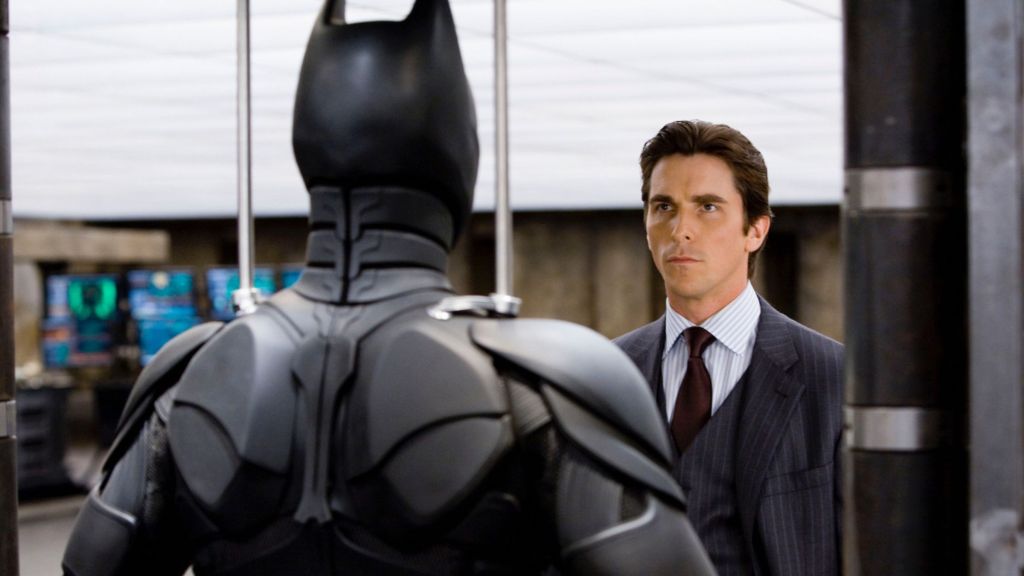
When it comes to The Dark Knight, the first thing that comes to mind isn’t “brain-melting puzzle”; it’s “the best superhero movie ever made.” The story pits Batman (Christian Bale) against the Joker (Heath Ledger), who turns Gotham into a social experiment of chaos and morality. There are no scrambled timelines here, and the only real challenge is keeping up with the moral dilemmas. They’re not always easy to process, like “how far can you go to maintain order?” Still, it’s not a movie that will fry your brain. Even the very existence of Batman as a symbol makes the audience question justice and sacrifice, but that’s just part of his character. This isn’t Nolan in “quantum physics notebook” mode; it’s easily the most digestible of his films.
11) Batman Begins
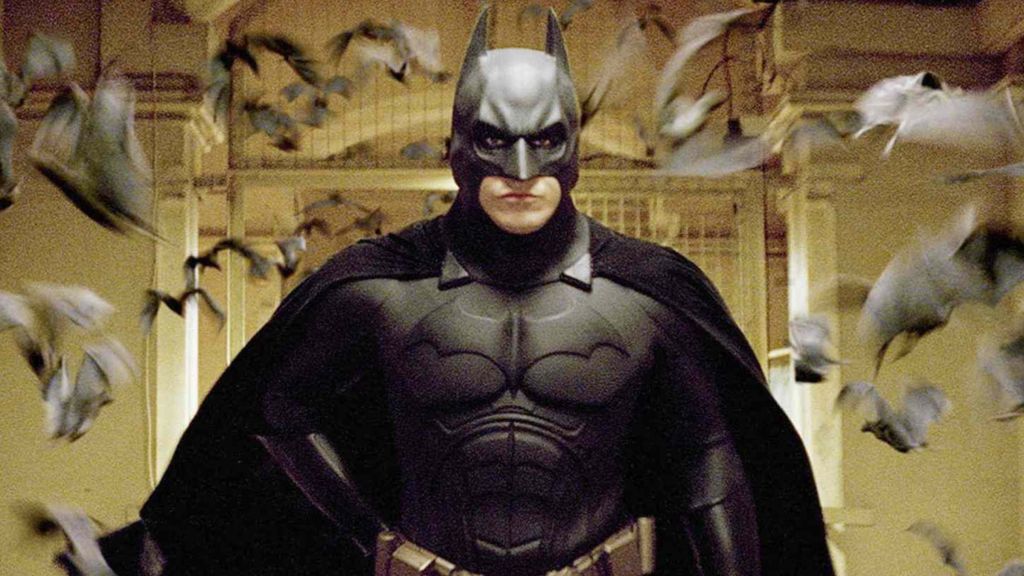
The first movie in Nolan’s superhero trilogy is the most accessible, but it’s not exactly light in that regard. Batman Begins follows Bruce Wayne from his training with the League of Shadows to becoming the hero we know and facing Ra’s al Ghul (Liam Neeson). It’s an origin story, but way more serious than what audiences were used to at the time. The brain workout comes from how the film explores fear as a tool. Bruce has to turn his trauma into a weapon, and the movie constantly plays with the fine line between inspiring and terrifying. It’s straightforward, but loaded with questions like “how far can fear be used for good?” Definitely not one of Nolan’s most complex productions, but it shows he never treated the genre as simple, mindless entertainment.
10) The Dark Knight Rises

To close out the trilogy, The Dark Knight Rises comes packed with ideas that make the story heavier than it first appears. The film follows a weakened Bruce Wayne returning to action when Bane (Tom Hardy) takes over Gotham and threatens to blow up the city. The plot is linear, but it dives deep into topics like legacy, inequality, and social upheaval. So how does that make it a bit more mentally demanding? The challenge lies in the subtext. Nolan uses a city in collapse to reflect clashing ideologies, questions whether Batman is a symbol or just a man, and throws in Talia’s (Marion Cotillard) reveal to shift the story’s weight. It’s not confusing, per se, but it definitely requires attention beyond the action scenes.
9) Insomnia

Stepping out of the superhero world, we get Insomnia. But it’s not really remembered as a mind-bending puzzle – and that’s because its complexity is more psychological. The movie follows Detective Will Dormer (Al Pacino), who travels to Alaska to investigate a murder and ends up accidentally killing his partner. Unable to sleep because of the constant daylight, he starts losing the line between truth and lies. The challenge here is trying to follow a mind unraveling. There’s no time trickery, but there’s paranoia, guilt, and a protagonist who becomes increasingly unreliable. The “brain burn” is more moral: you’re left questioning just how far a cop can justify his actions when he’s as guilty as the criminals he’s chasing.
8) Following
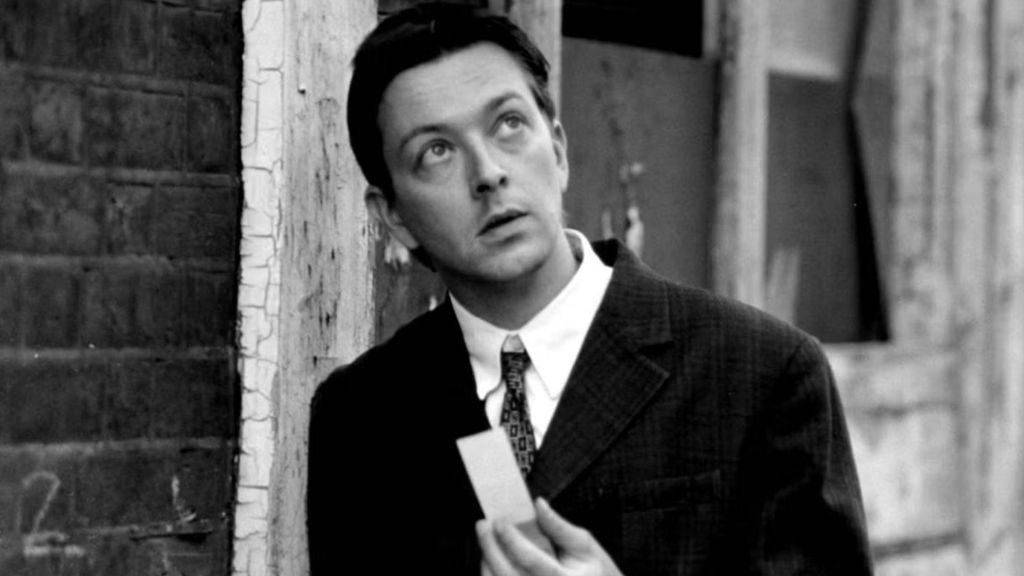
Following is Nolan’s first major movie, and there’s nothing too over-the-top about it. He wasn’t trying to go all-out on his first feature, but the truth is, he still wanted to test the audience’s mental patience in his own way. The plot follows an aspiring writer who starts tailing strangers on the streets and ends up getting involved with a thief, getting pulled into a game of manipulation. It’s a low-budget, black-and-white film, but the narrative can get a bit scrambled. The fun is in figuring out what happened, in what order, and who’s deceiving whom. On the other hand, it’s not a movie to completely check out on, because you’ll miss things if you’re not paying attention. But overall, Nolan is just showing his intent: to make the act of watching a movie something that sparks curiosity.
7) Dunkirk

Moving into Nolan’s more well-known works, Dunkirk could have been a classic war drama – but that wouldn’t be Nolan. The film focuses on the evacuation of British soldiers during World War II, but here’s the twist: it’s told from three perspectives: land, sea, and air. Each timeline has its own pace, and they only converge at the end. So why can it be tricky to follow? There’s almost no dialogue to explain anything, so you have to orient yourself across the timelines. Sometimes you’re watching events unfold over a week, then another part takes place over a single day or even an hour. The result? Even without being sci-fi, the movie forces you to piece together a mental puzzle just to follow the story’s flow (and all while the tension of war never lets up).
6) Oppenheimer
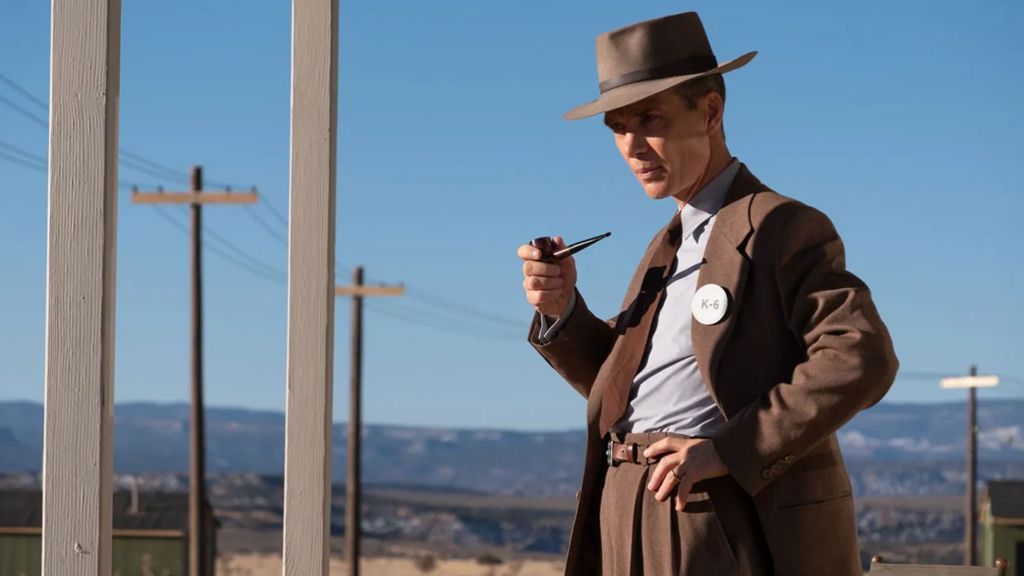
For many, Oppenheimer might not seem that confusing, but it earns this spot because, in the end, it’s arguably the most mentally exhausting. The story follows Robert Oppenheimer’s (Cillian Murphy) journey, from creating the atomic bomb to the political hearings that nearly destroyed his career. The narrative jumps between timelines and points of view, but the challenge isn’t just keeping up with those shifts; it’s absorbing the sheer volume of scientific, political, and moral information Nolan packs into the script. You have to process complex physics concepts while also thinking about ethics, responsibility, and power. It’s exhausting – and intentionally so. This box office hit is the kind of movie you might need to pause and collect your thoughts before diving back in.
5) Interstellar
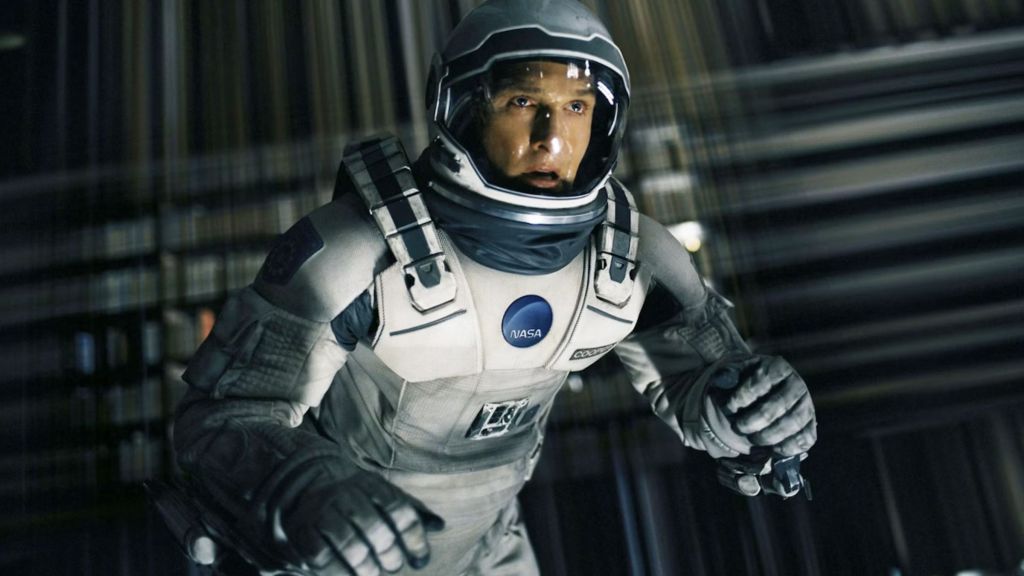
What if Nolan combined theoretical physics with family drama? With Interstellar, that’s exactly what he does. The story follows Cooper (Matthew McConaughey), a pilot who travels through a wormhole in search of a new home for humanity while leaving his daughter behind on Earth. So why does this make the film tricky to follow? The time dilation near black holes becomes the real villain in the family relationship, but it takes a while for the audience to fully grasp this and all the other details. It’s not Nolan’s most complicated work, but it still demands close attention and deep reflection. You’re juggling two things at once: understanding the science while also dealing with the emotional weight it brings to the story. In other words, your brain is working on two levels simultaneously: logical, scientific reasoning, and empathy and emotion – and that’s not easy to process.
4) The Prestige
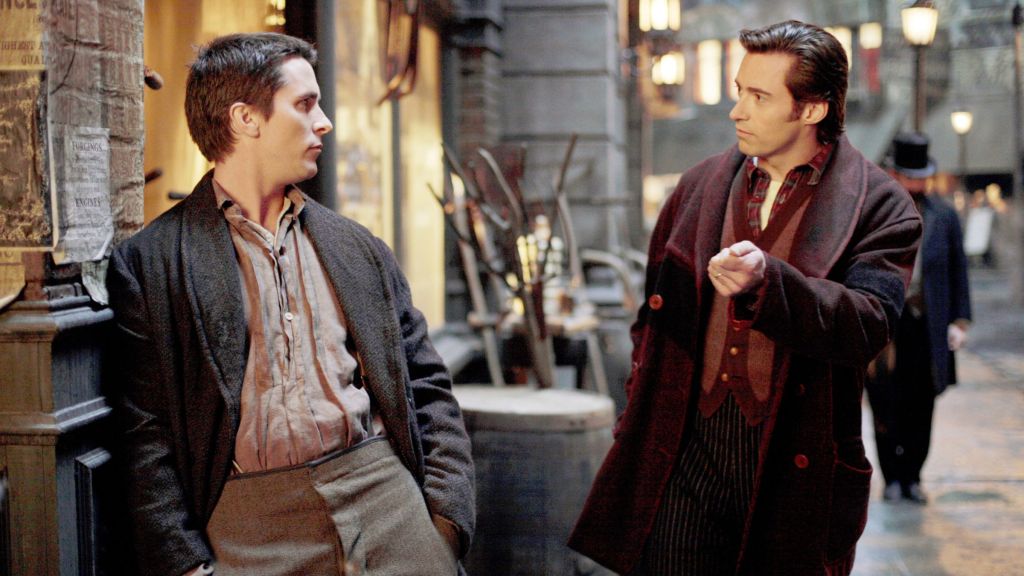
Few Nolan films are as detail-obsessed as The Prestige. The movie follows two rival magicians who get caught up in a deadly competition to create the perfect trick. The premise is intriguing on its own, but the narrative structure jumps between journals, different timelines, and plot twists that completely change what you thought you understood. In short, it’s nearly impossible to finish the movie without debating and trying to process everything. This is where Nolan starts demanding more from your brain than a typical flashy production would. The audience has to pay attention to every little detail to catch when the trick was in plain sight the whole time. The characters’ obsession with deceiving the audience becomes the same obsession viewers have in trying to unravel the clues. It’s smart, and, honestly, one of Nolan’s most underrated films.
3) Inception

The top 3 start with the famous and groundbreaking Inception – the movie that put Nolan at the center of every “what on earth just happened?” debate. The story follows a team of thieves who infiltrate dreams, but this time they have to plant an idea, moving through multiple layers of dreams (each with its own rules of time and physics). Watching it once isn’t enough. The ending? A total mind-bender. The film demands full attention, with multiple threads happening simultaneously, each moving at a different pace, while the protagonist Cobb’s (Leonardo DiCaprio) personal drama adds even more layers to the puzzle. It’s not just following the plot; you have to track which layer you’re in and what’s at stake. This is the classic Nolan experience: you watch it, debate it for hours afterward, and it’s still so mind-blowing that it barely sinks in.
2) Memento

Picking Nolan’s most confusing films isn’t easy, because two of them are practically neck-and-neck. But if you stop to think about it, the second spot goes to Memento. The story follows Leonard (Guy Pearce), who suffers from short-term memory loss and is hunting for the man who murdered his wife. The twist? Part of the story is told one way, while a black-and-white narrative is told another way. Watching it forces you to feel like you’re inside Leonard’s head, reconstructing what really happened and who’s manipulating whom in every scene. The difference here is that the movie is almost an interactive experience for your brain. The point is to piece everything together while inevitably feeling the frustration of memory loss. It goes far beyond entertainment.
1) Tenet
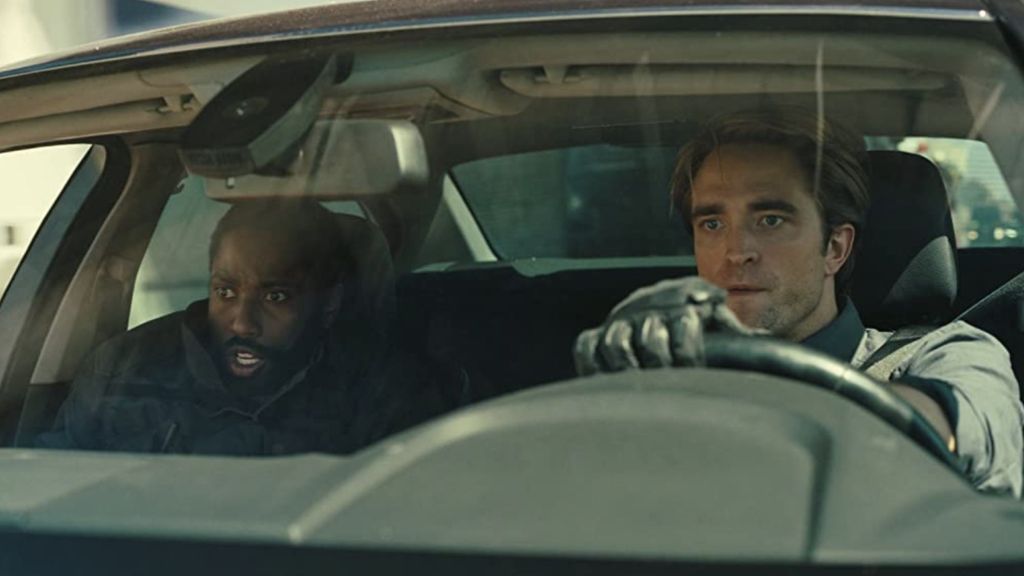
Straight to the point: some people still don’t understand Tenet. This is peak brain-melting territory, even if you’ve tried watching it multiple times to catch things from another angle and make sense of it. The movie follows an agent recruited to stop World War III using “reverse entropy” – a concept that allows people and objects to move backward through time (that alone is already a lot to process). Here, Nolan mixes high-octane action with ideas that feel ripped straight from an advanced physics textbook. It’s definitely not easy. Scenes happen forward and backward simultaneously, characters meet across different timelines, and much of the scientific jargon is thrown at you with zero explanation. This is the kind of movie where you walk away understanding maybe half of it. Rewatching is basically mandatory. It’s Nolan in full hardcore mode.
Which Nolan movie was the hardest for you to understand? What’s your favorite? Let us know in the comments!









